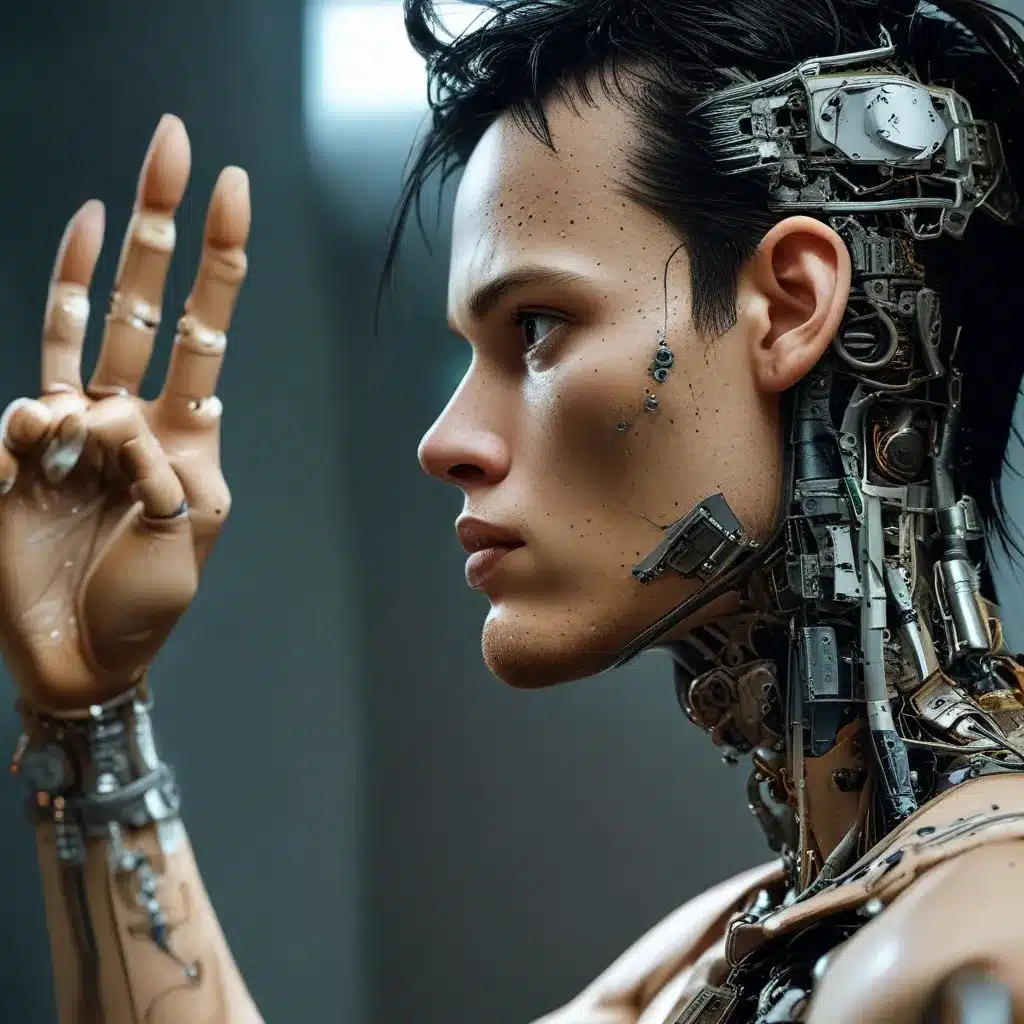
A Journey into the Future of Humanity
Imagine a world where we can enhance our bodies, augment our minds, and transcend our biological limitations. A world where we’re no longer confined to the constraints of our mortal forms, but can seamlessly integrate with technology to become something greater. This is the alluring vision of transhumanism – a movement that proposes to redefine the very essence of what it means to be human.
As I delve into this topic, I can’t help but feel a mix of excitement and unease. On one hand, the prospect of unlocking our full potential through technological advancement is thrilling. But on the other, the ethical implications and societal ramifications give me pause. Where exactly are we on the path to this transhuman future, and how close are we to crossing that threshold?
The Origins of Transhumanism
To understand where we’re headed, we must first explore the roots of this revolutionary idea. Transhumanism’s origins can be traced back to the 19th century, when Russian philosopher Nikolai Fedorov proposed that humanity should unite to find a solution to defeat death and bring the dead back to life. Though his vision may have seemed far-fetched at the time, it laid the groundwork for the modern transhumanist movement.
Fast-forward to the present day, and the core tenets of transhumanism remain largely the same: to use technology to extend human lifespan, enhance our cognitive abilities, and ultimately transcend our biological limitations. The difference is that we now have the scientific and technological capabilities to make significant strides towards this goal.
The Transhumanist Toolkit
What are the tools at our disposal in this quest to become something more than human? The list is both fascinating and dizzying.
From wearable tech like contact lenses with built-in cameras and language-translating earbuds, to implantable devices like brain-computer interfaces and neural lace, the possibilities for augmenting our bodies and minds are truly staggering. And the advancements in fields like gene editing, IVF, and biological enhancement hold the promise of eradicating diseases and even reshaping the very blueprint of our species.
But the implications of these technologies go far beyond mere physical or cognitive enhancement. As we integrate these tools into our lives, we may see a fundamental shift in the way we behave, communicate, and even perceive reality. Imagine being able to share your full sensory and emotional experiences with others through a brain-computer interface, or having an AI assistant guide your career trajectory based on your unique strengths and preferences.
The Ethical Quagmire
As exciting as these advancements may be, they also present a complex web of ethical dilemmas. When we have the ability to engineer our own evolution, where do we draw the line? What if certain enhancements become accessible only to the wealthy, leading to a stark divide between the augmented and the unaugmented?
These questions touch on the very core of what it means to be human, and the implications for society, government, and even our own identities are far-reaching. As we venture further into this uncharted territory, we’ll need to grapple with these issues head-on, lest we risk creating a future that is more dystopian than utopian.
The Road Ahead
So, how close are we to realizing this transhuman vision? The honest answer is, it’s hard to say. The pace of technological progress is accelerating at an unprecedented rate, and the investment and interest in these fields is substantial. Companies like Google, Amazon, and SpaceX are pouring resources into advancing these technologies, while visionaries like Elon Musk and Martine Rothblat are actively pursuing their own transhumanist agendas.
But the path ahead is fraught with uncertainty and potential pitfalls. As we push the boundaries of what it means to be human, we must tread carefully and consider the far-reaching consequences of our actions. After all, the future of our species – and perhaps the very nature of humanity itself – hangs in the balance.
Embracing the Uncertain Future
As I reflect on this journey into the realm of transhumanism, I can’t help but feel a sense of both excitement and unease. The prospect of unlocking our full potential through technology is undeniably alluring, but the ethical and societal implications give me pause.
Will I one day find myself walking the streets of ITFix.org.uk, the UK’s premier computer repair service, and see passersby with bionic enhancements, neural implants, or even artificial limbs? It’s a possibility that seems both fantastical and worryingly plausible.
Ultimately, the future of transhumanism remains uncertain, but one thing is clear: the decisions we make today will shape the world of tomorrow. As we continue to push the boundaries of what it means to be human, we must do so with a keen awareness of the consequences, both positive and negative. Only then can we hope to navigate this uncharted territory and create a future that truly reflects our highest aspirations as a species.












